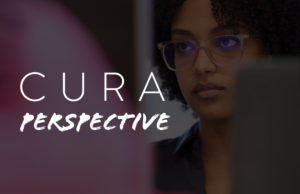 Every April, the HHS Office of Minority Health (OMH) announces a theme for National Minority Health Month centered around improving the health of racial and ethnic minorities and reducing health disparities. In honor of the month, Lula Hailesilassie is raising awareness about language barriers by sharing her family’s experiences navigating the health care system.
Every April, the HHS Office of Minority Health (OMH) announces a theme for National Minority Health Month centered around improving the health of racial and ethnic minorities and reducing health disparities. In honor of the month, Lula Hailesilassie is raising awareness about language barriers by sharing her family’s experiences navigating the health care system.
Growing up in the Eritrean and Ethiopian community, I’ve seen firsthand how language barriers have impacted my family’s health outcomes. Even though many members of my family have lived in the U.S. for over 30 years, there are certain medical or clinical terms that they don’t use or understand in English. At times, this language barrier can make it difficult to describe physical or emotional pain in a way that health care providers understand and has led to misdiagnoses, undertreatment and even lack of treatment.
In the summer of 2021, my aunt visited the doctor to address pain she was experiencing in her rectum. After explaining her symptoms as best she could, the doctor sent her home with a prescription for hemorrhoid medication. Despite this, my aunt continued to experience serious symptoms for months that we later learned were signs of rectal cancer. Only after seeing blood in her stool, did she ask me to go with her to another doctor’s visit to ensure the doctor fully understood her symptoms.
After explaining the symptoms my aunt was experiencing in detail, I had to proactively ask the doctor to conduct a colonoscopy for her. Following the colonoscopy and other appropriate medical exams, she was diagnosed with rectal cancer. We don’t know if this cancerous tumor had been rapidly growing since her initial visit to the doctor, but for two months she dealt with the physical pain of untreated cancer and the emotional toll that comes with not having a proper diagnosis or treatment plan.
My aunt immediately underwent six months of chemotherapy and radiation and will soon have a surgical procedure to fully remove the tumor. Despite the side effects of treatment, my aunt continues to stay positive and hopes for the best. I’m hopeful too.
When I talk about my aunt’s experience with friends, the most common question is, “Why didn’t your aunt bring up her pain with family sooner?” I explain that my aunt is at an age where all her hard work should be paying off, so asking for help meant setting aside her pride first. In our culture, pride can prevent hardworking women from accepting care as they often see themselves as the caregivers for their families.
I share this story to showcase the impact that language barriers can have on health outcomes. Reducing health disparities is multi-layered. We need health care workers to be culturally aware and empathetic towards people who aren’t native English speakers. Providers should promote a space for inclusivity and diversity in health care, which can be taught by utilizing preventive services, putting health care advocates in place, and having local community members volunteer to help ease and mitigate communication barriers. And while health care providers are reducing these barriers through training, I hope my community becomes more forthcoming with their medical conditions and doesn’t allow a false sense of pride to get in the way of receiving care.
Working in health care communications, I’m grateful for the public health knowledge and skills I have learned on the job, and I am applying them to my life.
I’m particularly inspired by what our public health clients aim to do for their communities. Rockford Ready, a city-wide health literacy initiative in Rockford, IL, aims to address health literacy, the city’s high rates of COVID-19 infection and improve provider-patient relationships. They’re using a multi-pronged approach to improve the health of Rockford residents that will ultimately empower the community to take control of their health.
As we wrap up and reflect on this month’s theme for National Minority Health Month, which is focused on highlighting the important role individuals and organizations can play in reducing health disparities and improving the health of racial and ethnic minorities, I will continue to debunk misinformation in my community and advocate for better, more inclusive communications between providers and patients.
For more information about inclusive communications, download our Inclusive Communications Tip Sheet.
Lula is an assistant account executive leveraging her studies in public relations and marketing to develop creative materials that help her clients achieve their goals.
